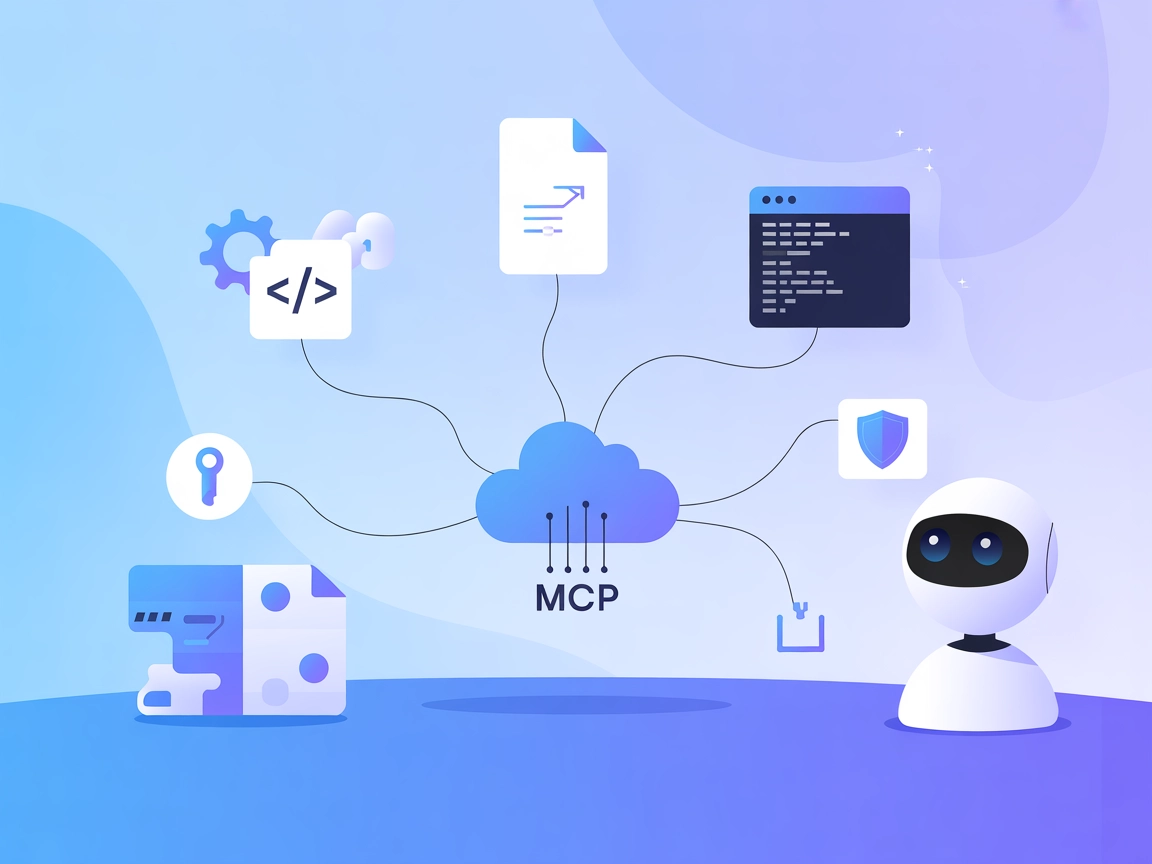
Model Context Protocol (MCP) Server
The Model Context Protocol (MCP) Server bridges AI assistants with external data sources, APIs, and services, enabling streamlined integration of complex workfl...

Label Studio MCP Server connects AI agents to powerful data labeling workflows. Automate project setup, task management, and prediction integration for streamlined annotation and quality assurance.
FlowHunt provides an additional security layer between your internal systems and AI tools, giving you granular control over which tools are accessible from your MCP servers. MCP servers hosted in our infrastructure can be seamlessly integrated with FlowHunt's chatbot as well as popular AI platforms like ChatGPT, Claude, and various AI editors.
The Label Studio MCP Server is a Model Context Protocol (MCP) server that enables seamless integration of AI assistants with a Label Studio
instance. Leveraging the label-studio-sdk, it allows programmatic management of labeling projects, tasks, and predictions via natural language or structured calls from MCP clients. This server empowers developers and AI agents to efficiently create and manage projects, import and query tasks, and automate predictions, all through standardized MCP tools. By exposing Label Studio’s core functionalities, it streamlines labeling workflows and enhances productivity for data annotation, quality review, and machine learning operations.
No prompt templates are mentioned in the repository.
No explicit MCP resources are listed in the repository documentation.
{
"mcpServers": {
"label-studio": {
"command": "uvx",
"args": [
"--from",
"git+https://github.com/HumanSignal/label-studio-mcp-server",
"mcp-label-studio"
],
"env": {
"LABEL_STUDIO_API_KEY": "your_actual_api_key_here",
"LABEL_STUDIO_URL": "http://localhost:8080"
}
}
}
}
claude_desktop_config.json file.{
"mcpServers": {
"label-studio": {
"command": "uvx",
"args": [
"--from",
"git+https://github.com/HumanSignal/label-studio-mcp-server",
"mcp-label-studio"
],
"env": {
"LABEL_STUDIO_API_KEY": "your_actual_api_key_here",
"LABEL_STUDIO_URL": "http://localhost:8080"
}
}
}
}
{
"mcpServers": {
"label-studio": {
"command": "uvx",
"args": [
"--from",
"git+https://github.com/HumanSignal/label-studio-mcp-server",
"mcp-label-studio"
],
"env": {
"LABEL_STUDIO_API_KEY": "your_actual_api_key_here",
"LABEL_STUDIO_URL": "http://localhost:8080"
}
}
}
}
{
"mcpServers": {
"label-studio": {
"command": "uvx",
"args": [
"--from",
"git+https://github.com/HumanSignal/label-studio-mcp-server",
"mcp-label-studio"
],
"env": {
"LABEL_STUDIO_API_KEY": "your_actual_api_key_here",
"LABEL_STUDIO_URL": "http://localhost:8080"
}
}
}
}
Note:
Securely store your API key using environment variables as shown in the env section above. This keeps sensitive information out of source code and config files.
Using MCP in FlowHunt
To integrate MCP servers into your FlowHunt workflow, start by adding the MCP component to your flow and connecting it to your AI agent:

Click on the MCP component to open the configuration panel. In the system MCP configuration section, insert your MCP server details using this JSON format:
{
"label-studio": {
"transport": "streamable_http",
"url": "https://yourmcpserver.example/pathtothemcp/url"
}
}
Once configured, the AI agent is now able to use this MCP as a tool with access to all its functions and capabilities. Remember to change "label-studio" to whatever the actual name of your MCP server is and replace the URL with your own MCP server URL.
| Section | Availability | Details/Notes |
|---|---|---|
| Overview | ✅ | |
| List of Prompts | ⛔ | No prompt templates found in documentation. |
| List of Resources | ⛔ | No explicit MCP resources listed. |
| List of Tools | ✅ | Project/Task management, predictions tools. |
| Securing API Keys | ✅ | Uses environment variables in config (env). |
| Sampling Support (less important in evaluation) | ⛔ | Not mentioned. |
Between the two tables:
This MCP server provides strong tool coverage for Label Studio management and clear setup documentation, but lacks prompt templates and explicit resource definitions. Sampling and roots support are not mentioned. Overall, it’s a solid but basic implementation for dedicated data labeling workflows.
| Has a LICENSE | ✅ (Apache-2.0) |
|---|---|
| Has at least one tool | ✅ |
| Number of Forks | 3 |
| Number of Stars | 8 |
The Label Studio MCP Server is a Model Context Protocol server that enables AI assistants and agents to interact programmatically with a Label Studio instance. It provides tools to manage labeling projects, tasks, and predictions through MCP-compatible clients.
You can automate project creation, updating project configs, importing tasks, retrieving tasks and annotations, and adding model predictions—making large-scale or ML-assisted data labeling seamless.
No. The recommended setup uses environment variables for sensitive credentials like your API key. This protects your secrets from being committed to source code.
Prompt templates and explicit resource definitions are not included in the current implementation, but all major Label Studio management tools are available.
Typical use cases include automated project management, bulk task import, ML model prediction integration, quality assurance, and customizable annotation workflows for labeling operations.
Empower your AI workflows by connecting Label Studio to FlowHunt. Automate project management, task imports, and predictions for fast, high-quality data annotation.

The Model Context Protocol (MCP) Server bridges AI assistants with external data sources, APIs, and services, enabling streamlined integration of complex workfl...

The ModelContextProtocol (MCP) Server acts as a bridge between AI agents and external data sources, APIs, and services, enabling FlowHunt users to build context...

The Markitdown MCP Server bridges AI assistants with markdown content, enabling automated documentation, content analysis, and markdown file management for enha...
Cookie Consent
We use cookies to enhance your browsing experience and analyze our traffic. See our privacy policy.